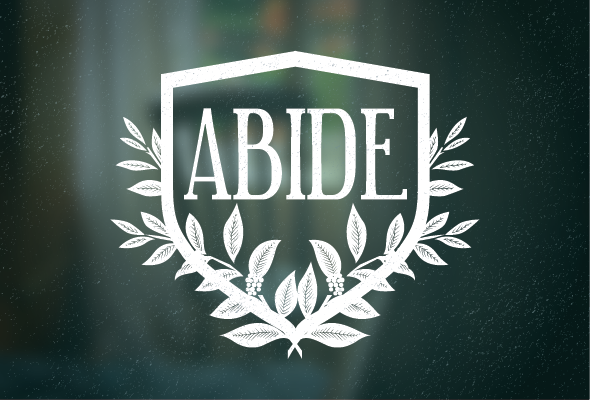Why Journaling Helps Us To Be Like Asaph
Karis Church is reading through Spiritual Disciplines for the Christian Life by Donald S. Whitney, as we seek to get back to the basics in our Christian faith. Join with us this week as Ryan Davis reviews chapter 11, Journaling…for the Purpose of Godliness.

“I will remember the deeds of the Lord; yes, I will remember your wonders of old. I will ponder all your work, and meditate on your mighty deeds.” Psalm 77:11-12, a psalm of Asaph.
As I read these profound words I was reminded of how often I forget how many times God has answered my prayers, made timely provision, and done marvelous things in my life. But as Donald Whitney talks about in his chapter on Journaling, a journal gives us a place to collect all of these memories and prevent them from being forgotten.
As with many of us, journaling may seem like just another thing to add to our spiritual to-do list. In many ways it is an exercise, just like walking, jogging, or biking. We make a vow to start it at the beginning of every year, but, like these exercises or other fads, we often never follow through. Journaling, I feel, can be a sort of idyllic endeavor. We purchase our new moleskin journals, sit down with our favorite cup of coffee or tea, and delude ourselves into thinking that we have to be on some super high spiritual plane like Augustine or Jonathan Edwards. I know I sinfully do this. It is tempting to think that my words don’t really matter.
But, to God, they do. Just as King David and Asaph pour out their souls in the Psalms or the prophet Jeremiah expresses grief in Lamentations, so the Lord listens. And he listens to you, too. Now, let's be quick to point out that our words are in no way divinely inspired, however, the discipline of journaling can be a way to raise up a “monument to God’s faithfulness” in our lives, and, more importantly, “for the purpose of godliness.”
Value of Journaling
In this chapter, Whitney gives eight values that journaling can help with: self-understanding and evaluation, meditating, expressing thoughts and feelings to the Lord, remembering the Lord’s works, creating and preserving a spiritual heritage, clarifying and articulating insights, monitoring goals and priorities, and maintaining the other spiritual disciplines.
These are all equally important, but for the sake of space and time I am only going to focus on one: self-understanding and evaluation.
My man, John Calvin, could not have said it better in his monumental work, Institutes: “Without knowledge of self there is no knowledge of God,” and "Through the knowledge of ourselves and our condition, we are aroused to seek God.”
Whitney goes on to say that, “a journal can be the means by which the Holy Spirit shows us areas of sin or weakness, the emptiness of a path we have chosen, insight into our motives, or other things that can transform the journal page into an altar of seeking God."
I know in my own life that writing out my testimony was the beginning to seeing how much the Lord has grown me over the past seven years. It’s allowed me to see myself and the events in my life more objectively. Like Whitney, "It has also allowed me to analyze my thoughts and actions apart from the feelings I had at the time." Because of this I've started to institute the art of sharing our testimonies in the Ridgeway Missional Community to better help my folks document the redemptive works of the Lord in their lives. This starts with putting it down on paper and spending much time in meditation and reflection. I have seen the people in my MC grow so much by being able to share their stories in God’s bigger story with all of us.
Applications
1) As a starting point, get a journal and try listing the one verse or idea from your Bible reading that impressed you the most. Meditate on that for a few minutes, then record your thoughts and insights.
2) Consider adding recent events in your life and your feelings and responses to them, brief prayers, joys, successes, failures, quotations, etc.
3) Pray for persistence in journaling. The novelty will soon wear off and you will experience spiritual "writer’s block.” Fight to keep journaling.
4) Start today!!! As with any discipline, you must start journaling before you experience its value.
5) Use your journal to record your progress with all of the other Spiritual Disciplines. This will be a great way to chart your progress.
Let me leave you with the wise words of Charles Spurgeon, “I have sometimes said, when I have become the prey of doubting thoughts, ‘Well, now, I dare not doubt whether there be a God, for I can look back in my Diary, and say, On such a day, in the depths of trouble, I bent my knee to God, and or ever I had risen from my knees, the answer was given to me.' ”
 Ryan Davis leads the Ridgeway MC, which meets on Wednesday evenings in the Ridgeway neighborhood in Columbia. He also heads up the Hospitality and Resource teams on Sundays. Ryan is married to Rachel.
Ryan Davis leads the Ridgeway MC, which meets on Wednesday evenings in the Ridgeway neighborhood in Columbia. He also heads up the Hospitality and Resource teams on Sundays. Ryan is married to Rachel.
Would you like to read more posts in our Abide series on Spiritual Disciplines? Find the full list of articles here.

